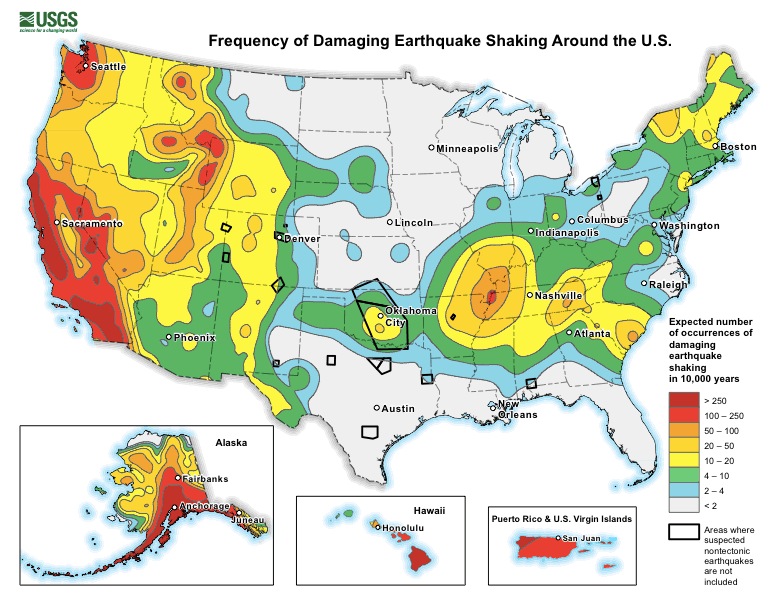Earthquakes 101: An Overview of What They Are and Why They Happen
Updated May 12 2020, 3:10 p.m. ET
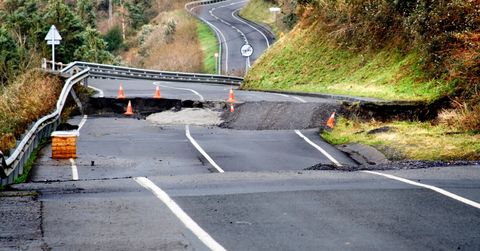
Earthquake: It’s a term that many of us are familiar with, but aren’t actually sure of how, why, or when they happen. And that’s okay! It’s good to be aware, but this topic is actually pretty darn scientific in nature. Let's take a closer look at your earthquake FAQ.
What is an earthquake, exactly?
Good question! On the outside, we recognize earthquakes as shaking or shifting movements that range from barely noticeable to severe. And that’s not far off from the true definition, or what’s happening below the surface during an event.
An earthquake is an intense shaking of Earth’s surface caused by movements of the planet’s outermost layer — the crust — according to NASA.
Here’s the science behind earthquakes:
Hold on tight, because we’re about to get technical on you! So, now we know that movements in the Earth’s crust cause earthquakes to happen.
But why is the crust moving, and since that’s the layer of the planet that we live on, why don’t we notice it more often?
There’s a lot of information to unpack here! The Earth is made of four layers, in this order: a solid crust, a hot, almost-solid mantle, a liquid outer core, and a solid inner core.
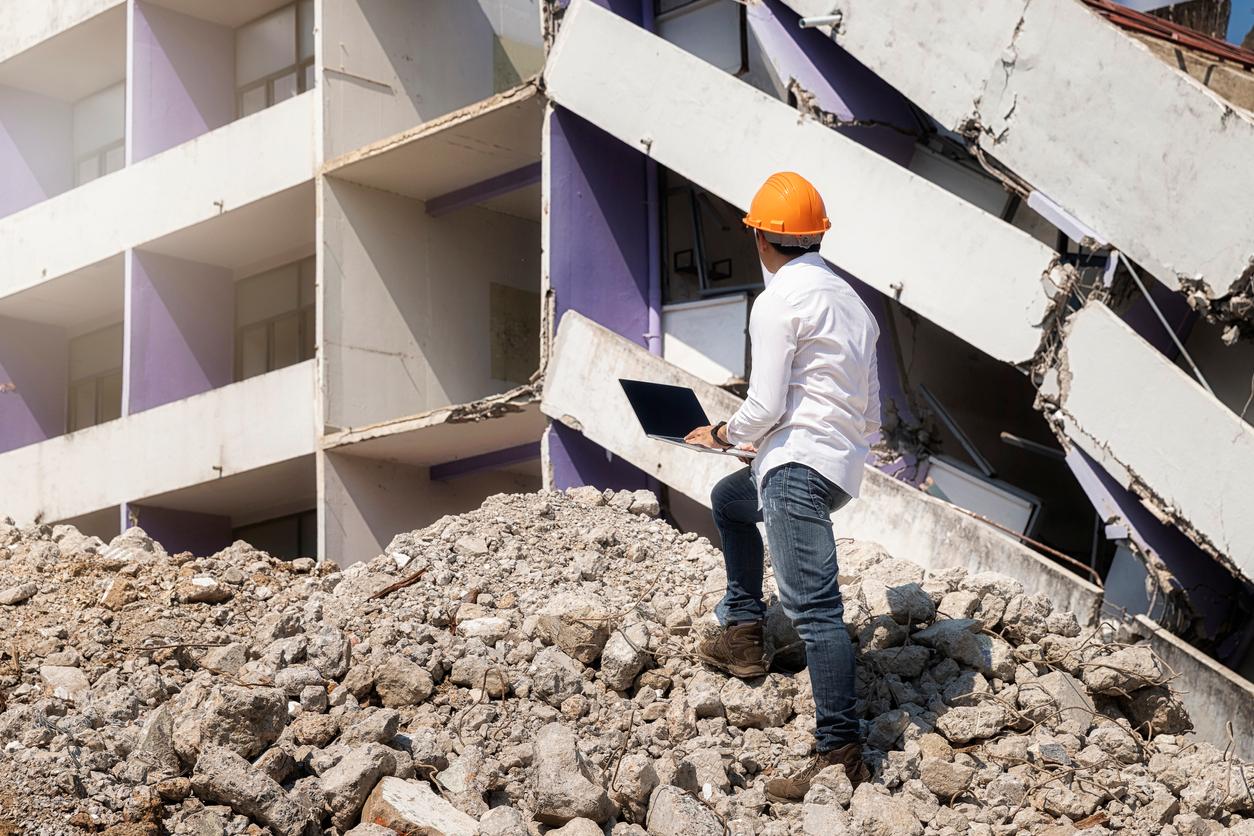
The solid crust that we walk on every day and the almost-solid mantle combine to create the lithosphere.
Are you still with us? Good! Because this part is important; the lithosphere is made up of pieces known as tectonic plates — NASA equates them to giant, slow-moving puzzle pieces whose motion causes cracks in the Earth’s surface.
The official explanation states, “Tectonic plates are constantly shifting as they drift around on the viscous, or slowly flowing, mantle layer below. This non-stop movement causes stress on Earth’s crust. When the stresses get too large, it leads to cracks called faults. When tectonic plates move, it also causes movements at the faults. An earthquake is the sudden movement of Earth’s crust at a fault line.”
How are earthquakes measured?
“Richter scale” is yet another earthquake-related term you may be familiar with but not actually sure of. If so, you’re not alone!
The Richter scale is used to measure the seismic waves created by the sudden release of stored energy in the Earth’s crust when an earthquake happens. The waves are measured with a seismometer, or seismograph, and that is how their severity is determined.
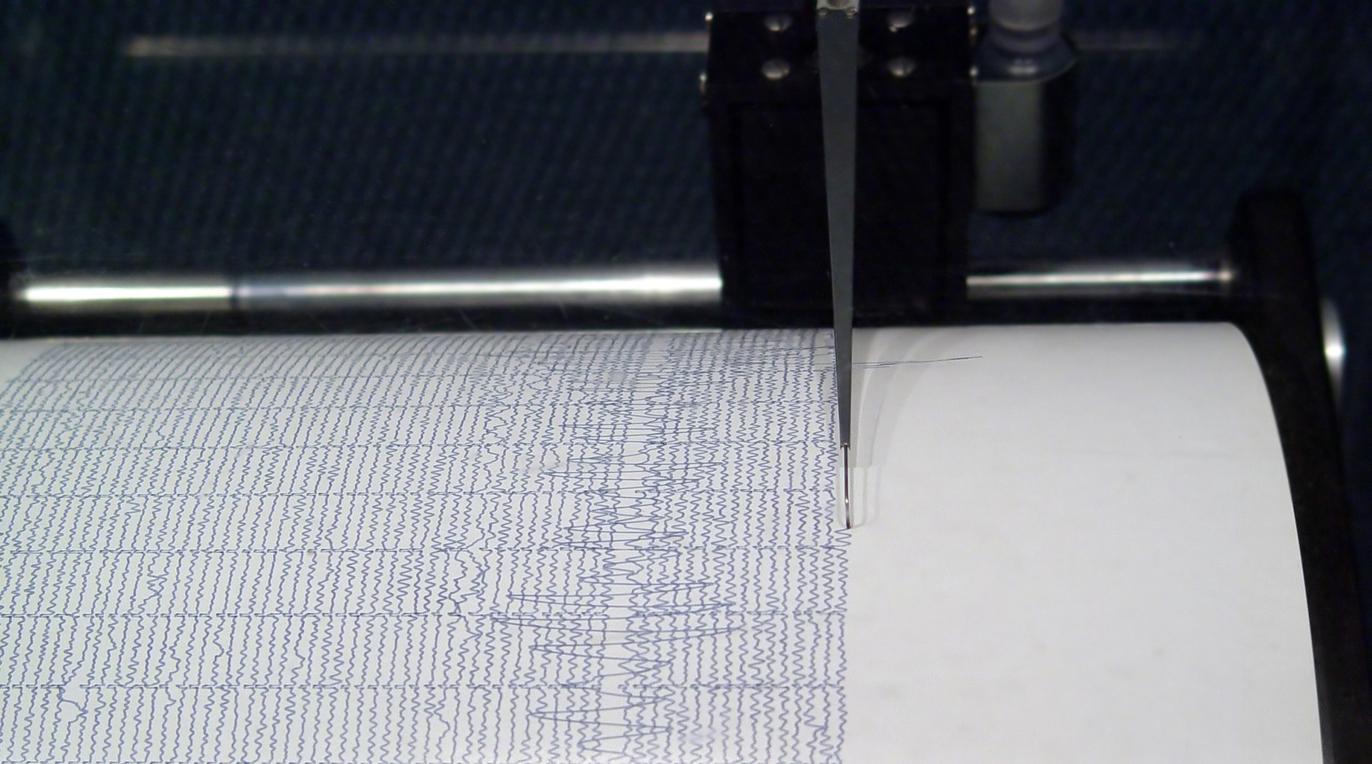
An earthquake’s magnitude can also be measured by the Moment scale. Earthquakes that are hard or nearly impossible to notice typically have a magnitude of 3 or lower, while magnitude 7 can cause serious damage over large areas, Science Daily reports.
Here’s where the Richter scale comes into play.
The Richter scale has been around since 1935, when it was developed by Charles F. Richter of the California Institute of Technology “as a mathematical device to compare the size of earthquakes,” the U.S. Geological Survey (USGS) shares.
For reference a magnitude 4 event is said to feel “like a large truck passing by or even the shaking caused by an explosion nearby,” whereas a 5 is “unmistakable as an earthquake...poorly constructed buildings are at high risk of structural damage.”
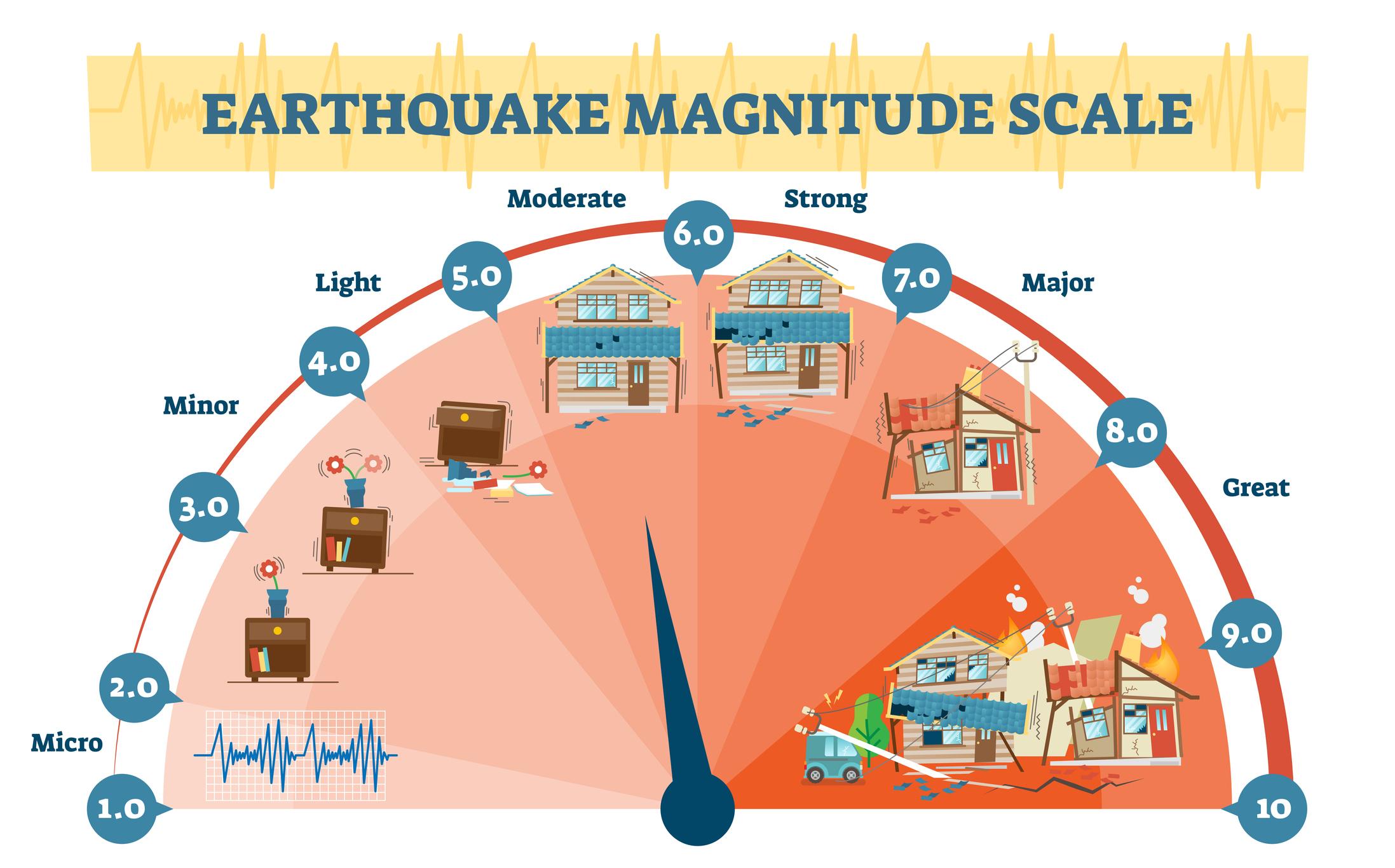
To break it down a bit further, each number increase on the scale increase represents a tenfold increase in measured amplitude. In other words, what seems like a very small increase on the scale is a much different earthquake experience on Earth.
“As an estimate of energy, each whole number step in the magnitude scale corresponds to the release of about 31 times more energy than the amount associated with the preceding whole number value,” USGS notes.
So where do earthquakes occur?
In the United States, we always think of earthquakes happening on the west coast, and for good reason. Earthquakes can happen anywhere and at any time, but they’re a lot more common in areas that have been impacted before.
Check out this earthquake probability map from the American Geosciences Institute for a look at event likelihood across the country. Worldwide, there are three zones that are especially known for their earthquake activity.
- The circum-Pacific seismic belt, located along the rim of the Pacific Ocean. This is the planet’s greatest belt, accounting for 81 percent of the largest earthquakes.
- The Alpide earthquake belt, running through the Himalayas, Mediterranean, and into the Atlantic. It is home to about 17 percent of the world's largest, most destructive earthquakes.
- The mid-Atlantic Ridge, right underneath Iceland. The only major belt to be submerged, it marks a divergent plate boundary, where tectonic plates are separating.
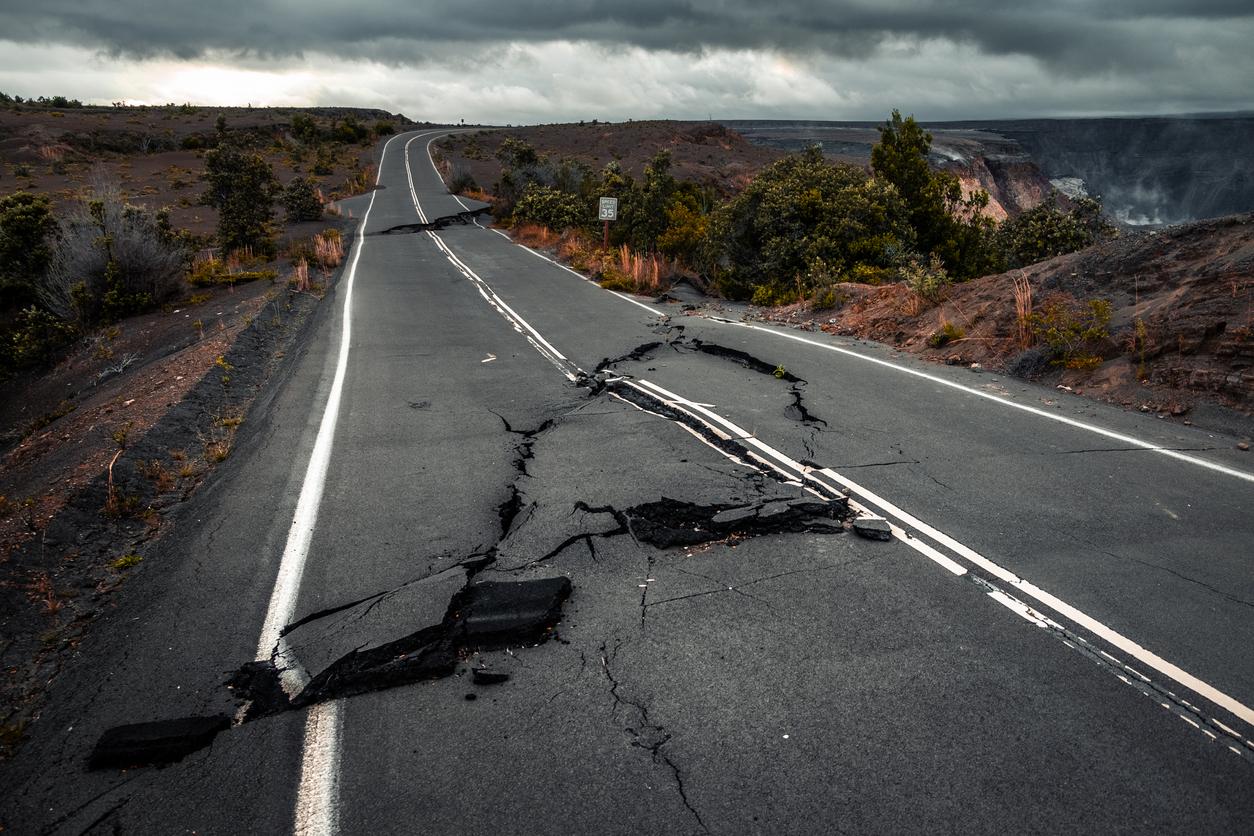
The U.S. has had several significant earthquakes recently.
The most recent earthquake tracked by the USGS was a magnitude 4.5 event 20 miles from Salton City, California, extending into Mexico. It happened on May 10, according to the official earthquake tracker, which includes everything from event location to how it felt for people who experienced it.
In the past month alone, there were also events recorded in Western Idaho, Northern Alaska, Utah, and central California, all clocking in at about a 4.0 magnitude.
Essentially, if you live in an area with a history of earthquake activity, you are more likely to experience one for yourself.
Stay informed and stay safe.
